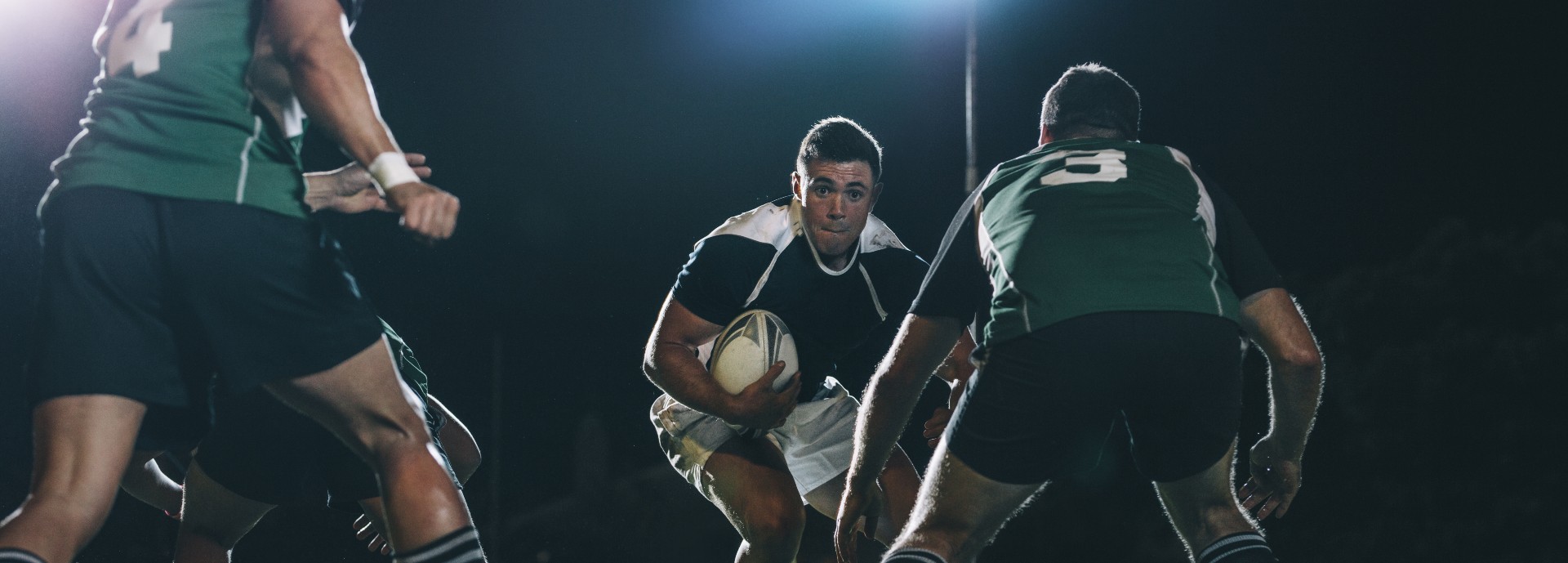New study reveals hundreds of alcohol references during high-profile televised rugby matches
Back to news
Experts from the University of Stirling have warned that rugby supporters – including young children – are being subjected to alcohol advertising hundreds of times during televised matches.
A new study led by the University’s Institute for Social Marketing and Health studied broadcast coverage of last year’s Six Nations competition and found that there were more than 900 alcohol references in one match alone – the equivalent of an advert every 12 seconds.
The findings from the research, conducted by Dr Richard Purves and Dr Nathan Critchlow, are outlined in a new report prepared for partners, Scottish Health Action on Alcohol Problems (SHAAP), the Institute of Alcohol Studies (IAS) and Alcohol Action Ireland.
Dr Purves said: “We explored the frequency and nature of alcohol marketing during four televised matches at the 2020 Six Nations Rugby Championship – two played in Ireland, one in Scotland and another in France. For each broadcast, we measured the prevalence of alcohol advertising and considered factors such as where the advert appeared in the broadcast, how long it appeared on screen, and the brands featured.
“Our study found that hundreds of references to alcohol were visible during each match – with more than 900 in the Scotland/England match alone.
“We also found that the alcohol industry works to circumvent marketing restrictions by using identifiable branding in adverts, without the brand name itself.
“This is of greatest concern when you consider that many families will be tuning into these games – and previous research has shown that children exposed to alcohol advertising are more likely to start drinking at a younger age and drink more heavily in later life.”
The study found 961 references in the Scotland/England match and 754 in the Ireland/Wales match, the equivalent of adverts every 12 and 15 seconds, respectively.
In the UK, alcohol marketing is self-regulated by the alcohol industry – and the code of practice states that companies “must ensure there is a recognisable commitment to promoting responsible drinking and/or supporting diversionary community activities”. However, the study found just 3.5 percent of references to the sponsor were accompanied by such a message in the Ireland/Scotland game and 0.4 percent in the Scotland/England game.

Our study found that hundreds of references to alcohol were visible during each match – with more than 900 in the Scotland/England match alone.
The research also identified the use of “alibi marketing” where features linked to the brand are used for promotional purposes, without explicitly referring to the brand itself. Notably, this was observed during matches played in France, despite it appearing to be prohibited under their regulations.
The findings will also be of interest to regulators and policymakers in Ireland where, in November this year, similar restrictions will be introduced.
In the report, Dr Purves and Dr Critchlow say: “The continued presence of alibi marketing in France does have implications for the regulators and policymakers overseeing the new restrictions in Ireland, namely whether alibi marketing will also be restricted under the wording of their legislation and what arrangements are in place to monitor and enforce the restrictions.”
Dr Sheila Gilheany, Chief Executive of Alcohol Action Ireland said: “This is a great opportunity for Ireland to implement a public health policy that will reduce alcohol advertising exposure to children. As this report highlights, the Irish Government and public health officials need to be wary of the current loopholes we see in the French approach and ensure our regulations protect against this.”
The Scottish Government is expected to launch a consultation on restricting the marketing of alcohol in early 2022.
Elinor Jayne, Director of Scottish Health Action on Alcohol Problems (SHAAP), said: “As a society, we are used to alcohol companies sponsoring sports, yet it is totally incongruous to have what is an intrinsically unhealthy product associated with a healthy activity.
“The alcohol industry’s involvement in sports sponsorship has been shown to increase the chances of today’s children being harmed by alcohol in the future, and taking into consideration the alcohol industry’s laissez-faire approach to self-regulation, this research should serve as a reminder to the Scottish Government of just how much needs to be done to restrict alcohol marketing around sports.”
Katherine Severi, Chief Executive of the Institute of Alcohol Studies, said “Much like with minimum unit pricing, the Westminster Government is a few steps behind the devolved nations and Ireland when it comes to marketing restrictions.
“We hope that this new study, and the public’s support for such regulations, will encourage the UK Government to follow suit in launching its own consultation.”

